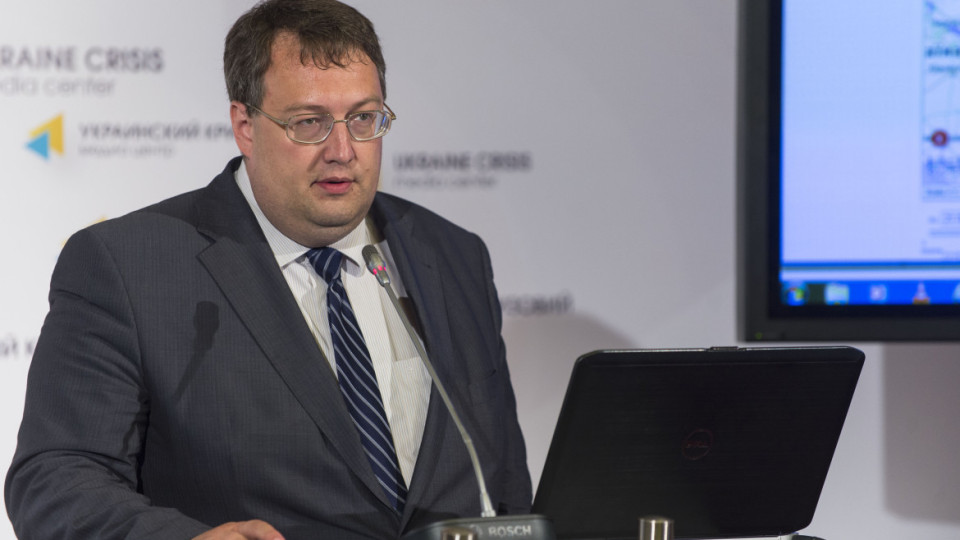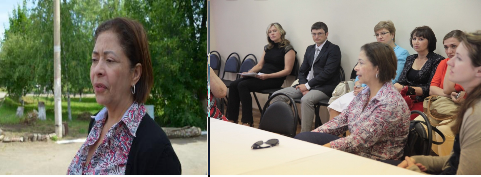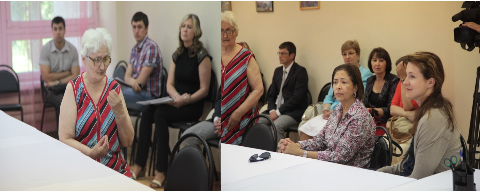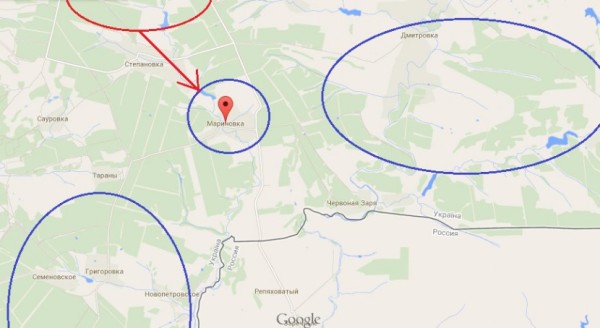The following article was first published by GR on August 6, 2006. It is of particular relevance to an understanding both of the terrorist insurgency in Syria (supported by Turkey and Israel), Israeli threats directed against Iran as well as the ongoing Israeli attacks on the people of Gaza.
There was a deterioration of relations between Ankara and Tel Aviv in 2010 following the Marvi Marmara Gaza flotilla incident.
While ties were officially suspended after the UN released its report of the Mavi Marmara raid by Israel, in practice, senior Israeli and Turkish military and intelligence officials continued to collaborate under their longstanding bilateral military and intelligence agreement. In December 2013, diplomatic relations were normalized.
In relation to Israel’s July 2014 attacks on Gaza, Erdogan accused Israel of “continuing to carry out state terrorism in the region …“What’s the difference between this mentality and that of Hitler?” Erdogan asked. (Press TV, July 15 2014)
Despite official statements and Prime Minister Erdogan’s narrative regarding Israel’s attack on Gaza ( largely intended for Turkish public opinion), Turkey remains a firm ally of Israel.
Michel Chossudovsky, July 16, 2014
Highlights. Scroll down for Complete article
From the outset in 1992, the Israeli-Turkish military alliance has consistently been directed against Syria. A 1993 Memorandum of Understanding led to the creation of (Israeli-Turkish) “joint committees” to handle so-called regional threats. Under the terms of the Memorandum, Turkey and Israel agreed “to cooperate in gathering intelligence on Syria, Iran, and Iraq and to meet regularly to share assessments pertaining to terrorism and these countries’ military capabilities.”
Turkey agreed to allow IDF and Israeli security forces to gather electronic intelligence on Syria and Iran from Turkey. In exchange, Israel assisted in the equipping and training of Turkish forces in anti-terror warfare along the Syrian, Iraqi, and Iranian borders.” (Ibid)
In 1997, Israel and Turkey launched “A Strategic Dialogue” involving a bi-annual process of high level military consultations by the respective deputy chiefs of staff. (Milliyet, Istanbul, in Turkish 14 July 2006).
Already during the Clinton Administration, a triangular military alliance between the US, Israel and Turkey had unfolded. This “triple alliance”, which is dominated by the US Joint Chiefs of Staff, integrates and coordinates military command decisions between the three countries pertaining to the broader Middle East. It is based on the close military ties respectively of Israel and Turkey with the US, coupled with a strong bilateral military relationship between Tel Aviv and Ankara. Amply documented, Israel and Turkey are partners in the US planned aerial attacks on Iran, which have been in an advanced state of readiness since mid-2005. (See Michel Chossudovsky, May 2005)
The triple alliance is also coupled with a 2005 NATO-Israeli military cooperation agreement which includes “many areas of common interest, such as the fight against terrorism and joint military exercises. These military cooperation ties with NATO are viewed by the Israeli military as a means to “enhance Israel’s deterrence capability regarding potential enemies threatening it, mainly Iran and Syria.”
* * *
“Triple Alliance”: The US, Turkey, Israel and the War on Lebanon
by Michel Chossudovsky
Global Research, August 6, 2006
While Turkey’s Prime Minister Recep Tayyip Erdogan has condemned Israel for the atrocities committed in Lebanon [2006], his government remains a staunch ally of Israel and a major military actor in the Middle East and Central Asia, with close ties to Washington, Tel Aviv and NATO headquarters in Brussels.
“This war is unjust… The Israeli war …is simply fueling hatred… It is not difficult to see that a terrible global war and a huge disaster await us.””, said Erdogan at the Organization of the Islamic Conference (OIC) meeting in Kuala Lumpur, in early August
In a cruel irony, Turkey, through its military alliance with Israel and the US, is a de facto partner in the “terrible global war” alluded to by Prime Minister Erdogan.
The Turkish head of government’s apparent indignation responds to strong anti-Israeli sentiment within Turkey and the Middle East. His Justice and Development Party (AKP), which dominates the ruling coalition is considered to be a “pro-Islamic political entity”. Yet beneath the gilded surface of Turkish party politics, the ruling AKP coalition government led Prime Minister Erdogan is complicit in Israeli war crimes.
Turkey’s condemnation of Israel is in blatant contradiction with the substance of its longstanding military cooperation agreement with Israel, which the ruling AKP government has actively pursued. Prime Minister Recep Tayyip Erdogan has not only supported Israeli interests, he had also developed a close personal rapport with (former) Prime Minister Ariel Sharon.

The contradictions underlying Turkey’s foreign policy also relate to complex divisions within the ruling coalition as well as between the government and the Military hierarchy, which historically has maintained a close rapport with the Pentagon and NATO. While the alliance with Israel may be the source of political contention in the Turkish parliament, it has, nonetheless, been accepted and endorsed, since the mid-1990s, by successive government coalitions.
The Israeli-Turkish Military Alliance
A significant turnaround in Turkish foreign policy occurred in the immediate wake of the Cold War, which contributed to redefining the Turkey-Israel relationship. Initially forged under the helm of Prime Minister Tansu Çiller, the Israeli-Turkish military pact is characterized by the landmark 1994 Security and Secrecy Agreement (SSA). This strategic realignment of Turkey with Israel was part of Washington’s post Cold War agenda in the Middle East, which was also supported by US covert intelligence operations. In 1997, Mrs. Ciller was accused of having been recruited by the CIA and “of accepting money from foreign governments [the US] to work against Turkey’s national interests”. (Voice of America, 17 July 1997)
The 1994 Security and Secrecy Agreement emulates a defunct secret agreement between Israel and Turkey formulated in the late 1950s at the height of the Cold War, entitled the “Peripheral Pact”:
“By 1958, however, a fascinating secret agreement, sometimes referred to as the “peripheral pact”, had emerged between the two nations. It’s conceptual framework can be traced back even before the founding of the state [of Israel] to the ideology of Baruch ‘Uzel [Uziel], an Israeli leader who would later become a member of the Liberal Party.
Notably, exact details of the alliance remain hidden in numerous classified Israeli documents, and are obscured by Turkish secrecy, classified documents, and insistence that there was no actually documented pact between the countries. Nonetheless, it seems the alliance had three fundamental tenets. The diplomatic tenet involved joint public relations campaigns to influence general publics. The military aspect allegedly involved the exchange of intelligence information, joint planning for mutual aid in emergencies, and Turkish support in the Pentagon and at NATO for an improved Israeli military. Some also say that “highly sensitive” scientific cooperation as well as the export of Israeli military equipment to the Republic occurred. (See Washington Institute)
This 1958 bilateral military cooperation agreement, however, was short lived. In the course of the 1960s, Turkey pursued a rapprochement with both the Soviet Union and the Arab countries. (Ibid).
A protocol on Defense Cooperation was established in 1992 under the government of Süleyman Demirel, followed two years later by the signing of the 1994 Security and Secrecy Agreement (SSA). Necmettin Erbakan succeeded Tansu Çiller as Prime Minister in 1997 in “an Islamic center-right coalition” with Ciller’s True Path Party.
In 1997, the Erbakan government was forced to resign as result of pressures exerted by the Military in what was described as “a post- modern coup d’État”.
The US sponsored 1994 Security and Secrecy Agreement (SSA) implemented by the Çiller government, essentially set the stage for a firm and close relationship between Israel and Turkey in military and intelligence cooperation, joint military exercises, weapons production and training. The SSA is far-reaching in its implications. It also requires the exchange of military intelligence in what is described as the “guaranteed secrecy in the exchange and sharing of information”.
From the outset in 1992, the Israeli-Turkish military alliance has consistently been directed against Syria. A 1993 Memorandum of Understanding led to the creation of (Israeli-Turkish) “joint committees” to handle so-called regional threats. Under the terms of the Memorandum, Turkey and Israel agreed “to cooperate in gathering intelligence on Syria, Iran, and Iraq and to meet regularly to share assessments pertaining to terrorism and these countries’ military capabilities.”
Turkey agreed to allow IDF and Israeli security forces to gather electronic intelligence on Syria and Iran from Turkey. In exchange, Israel assisted in the equipping and training of Turkish forces in anti-terror warfare along the Syrian, Iraqi, and Iranian borders.” (Ibid)
In 1997, Israel and Turkey launched “A Strategic Dialogue” involving a bi-annual process of high level military consultations by the respective deputy chiefs of staff. (Milliyet, Istanbul, in Turkish 14 July 2006).
The 1994 SSA was followed in 1996 by a Military Training and Cooperation Agreement (MTCA). Also in 1996, Turkey entered into a Military Industry Cooperation Agreement with Israel, which was in turn instrumental to the signing of “a secret agreement” with Israel Military Industries to update its tank division, modernize its helicopter fleet and its F-4 and F-5 combat planes (Ibid). In turn, the two countries entered into negotiations with a view to establishing a Free Trade Agreement, which came into operation in 2000.
On the official agenda of recent Israeli-Turkish talks are joint defense projects, including the joint production of Arrow II Theater Missile Defense and Popeye II missiles. The latter, also known as the Have Lite, are advanced small missiles, designed for deployment on fighter planes.

Israel’s Arrow II
More recently, the Eastern Mediterranean corridor, from the Red Sea, through Lebanon and Syria to the Syrian- Turkish border has, both from a strategic and economic standpoint, become an important factor in the evolving Israel-Turkey military alliance. It is intimately related to the proposed Ceyhan-Ashkelon oil pipeline project (to be implemented by Turkey and Israel), which would link the Baku-Tblisi-Ceyhan pipeline to Israel’s Ashkelon-Eilat pipeline. (Michel Chossudovsky, The War on Lebanon and the Battle for Oil, July 2006)
The war on Lebanon ultimately seeks to establish joint Israeli-Turkish military control over a coastal corridor extending from the Israeli-Lebanese border to the East Mediterranean border between Syria and Turkey. What this militarization of the coastal Lebanese-Syrian corridor would signify is the control of almost the entire Eastern Mediterranean coastline by Turkey and Israel under the terms of the Israeli-Turkish military alliance. (Ibid)
Water is also part of this strategic relationship. Under a 2004 agreement, Turkey was to sell some 50 million cubic meters of water per annum to Israel over a 20 year period. In recent developments, the agreement has been revised. The water would to be channeled to Israel via an Israeli-Turkish water pipeline. (Ibid)
The NATO-Israel Security Agreement
In April 2001, Israel entered into “a security agreement” with NATO as part of NATO’s Mediterranean Dialogue:
“This security agreement provides the framework for the protection of classified information, as defined by all 19 member countries, and is signed by countries that wish to engage in cooperation with NATO.”
In 2004, the decision was taken to “elevate” the 2001 Mediterranean Dialogue “to a genuine [military] partnership and to launch the Istanbul Cooperation Initiative (ICI) with selected countries [including Algeria, Egypt, Israel, Jordan. Mauritania, Morocco and Tunisia] in the broader region of the Middle East.” The mandate of the Istanbul Cooperation Initiative, is to:
“contribute to regional security and stability, by promoting greater practical cooperation, enhancing the Dialogue’s political dimension, assisting in defense reform, cooperation in the field of border security, achieving interoperability and contributing to the fight against terrorism, while complementing other international efforts.” (NATO, emphasis added)
The Initiative “offers a ‘menu’ of bilateral activities” consisting of “defense reform, defense budgeting, defense planning and civil-military relations; military-to-military cooperation to contribute to interoperability through participation in selected military exercises and related education and training activities,…” ; cooperation in the fight against terrorism, including through intelligence-sharing; cooperation in the Alliance’s work on the proliferation of weapons of mass destruction … (NATO, The Istanbul Cooperation Initiative)
In practical terms, the Istanbul Cooperation Initiative (ICI) neutralizes Israel’s potential adversaries in the Arab World. It essentially grants a green light to Israel and its indefectible Turkish ally. It ensures that other member States (frontline Arab States) of the NATO sponsored ICI, will not intervene in a Middle East conflict instigated by Israel. This is the main purpose of the Istanbul Cooperation Initiative (ICI): paralyze the Arab States at the diplomatic and military levels, to ensure that they will not act in any meaningful way against US-Israeli interests in the Middle East.
By late 2004, the “enhanced” Mediterranean Dialogue (Istanbul Cooperation Initiative), had evolved into a more cohesive military cooperation agreement. The member countries met in Brussels in November 2004. Senior Israeli IDF officers held discussions, under NATO auspices, with the top military brass of six members of the Mediterranean basin nations, including Egypt, Jordan, Algeria, Tunisia, Morocco, Algeria and Mauritania. The hidden agenda of this meeting was essentially to set the stage for a full-fledged NATO-Israel partnership, with the tacit consent of the frontline Arab States.
This partnership relationship was firmed up in bilateral NATO-Israel talks held in Tel Aviv in February 2005.
Joint NATO-Israel Military Exercises
In early 2005, the US, Israel and Turkey held military exercises in the Eastern Mediterranean, off the coast of Syria, which were followed by NATO military exercises with Israel, which included several Arab countries.
These joint war games were then followed in February 2005, by NATO’s Secretary General Jaap de Hoop Scheffer’s visit to Israel. De Hoop Scheffer had talks with Prime Minister Ariel Sharon, Foreign Minister Silvan Shalom, Defense Minister Shaul Mofaz and the Chief of Staff of the Israeli Defense Forces (IDF) Lt. General Moshe Ya’alon. (NATO Press Release, 24 February 2005).
The purpose of these meetings pertained to “possible ways of expanding current cooperation, particularly in the areas of military co-operation, the fight against terrorism and the proliferation of weapons of mass destruction.”
The ongoing relationship between NATO and Israel was confirmed in NATO’s Secretary General de Hoop Scheffer’s February 2005 speech in Tel Aviv:
“…At NATO’s Istanbul Summit [June 2004], we agreed, in close consultation with Israel and other partners in this process, to try to move our relationship to another level – in short, to move from dialogue to partnership. We want to further intensify our political dialogue; to promote greater interoperability between our military forces; and to encourage greater cooperation on defense reform, as well as in the critical fight against terrorism. …
… Israel has … stepped forward with a list of concrete proposals for enhancing our cooperation. These proposals cover many areas of common interest, such as the fight against terrorism or joint military exercises, where Israel’s expertise is very much valued. They underline your country’s desire for a strengthened relation, and we are looking forward to working with Israel in the framework of an individual action programme. (NATO website, 24 February 2005, click for complete transcript of speech) (emphasis added)
These military cooperation ties were viewed by the Israeli military as a means to “enhance Israel’s deterrence capability regarding potential enemies threatening it, mainly Iran and Syria.”
It is worth noting that in February 2005, coinciding with the NATO mission to Israel, the government of Ariel Sharon dismissed General Moshe Ya’alon as Chief of Staff and appointed Air Force General Dan Halutz. This was the first time in Israeli history that an Air Force General was appointed Chief of Staff (See Uri Avnery, February 2005).
The appointment of Major General Dan Halutz as IDF Chief of Staff was considered in Israeli political circles as “the appointment of the right man at the right time.” In retrospect, his appointment has a direct bearing on the planning of the air campaign directed against Lebanon, although at the time Maj General Halutz was slated to undertake the planning of possible aerial bombing raids on Iran, as part of a planned US-Israeli operation. These planned bombings on Iran would be coordinated by US Strategic Command (USSTRATCOM) in liaison with Israel, Turkey and NATO. (See Michel Chossudovsky, May 2005, February 2006, Jan 2006 ).
The Role of NATO in Relation to the War on Lebanon
NATO cannot under any circumstances play a “neutral stabilizing” role in Lebanon. NATO’s involvement would be dictated by the precise terms of the “NATO-Israel partnership”. A NATO “stabilization force”, pursuant to a UN Security Council Resolution would side with Israel against Lebanon.
The NATO-Israel partnership establishes NATO’s “responsibilities” in relation to its ally Israel: Israel is under attack and has “the legitimate right to defend itself”. The terms of the NATO-Israel agreement as defined in the February 2005 consultations in Tel Aviv, specifically point to “the fight against terrorism”.
The 2005 Israel-NATO agreement is all the more important because it requires NATO, in the context of the Israeli led war on Lebanon, to support Israel. It also means that NATO would be involved in the triangular process of military consultations and planning, which link Tel Aviv to Washington and Ankara.
Meanwhile, the NATO-Israel partnership reached in 2005 was also viewed by the Israeli government as an opportunity to strengthen its military alliance with Turkey in relation to its main regional enemies (Syria and Iran) as well as boost the shattered image of Israel:
The more Israel’s image is strengthened as a country facing enemies who attempt to attack it for no justified reason, the greater will be the possibility that aid will be extended to Israel by NATO. Furthermore, Iran and Syria will have to take into account the possibility that the increasing cooperation between Israel and NATO will strengthen Israel’s links with Turkey, also a member of NATO. Given Turkey’s impressive military potential and its geographic proximity to both Iran and Syria, Israel’s operational options against them, if and when it sees the need, could gain considerable strength. ”
(Jaffa Center for Strategic Studies, http://www.tau.ac.il/jcss/sa/v7n4p4Shalom.html )
New Pro-Israeli Turkish Chief of Staff
Another crucial and related development –which has a direct bearing on the current situation in Lebanon– is the timely appointment by the Erdogan government of a new Chief of Staff. Ground Forces Commander General Yasar Buyukanit, who is slated to succeed Gen. Hilmi Ozkok in late August.
General Buyukanit is pro-Israeli. He is a US approved appointee, firmly committed to America’s “War on Terrorism”. His timely appointment at the outset of Israel’s military campaign in Lebanon bears a direct relationship to the evolving Middle East war theater.
The appointment of General Buyukanit as Chief of Staff has been in the pipeline since December 2005, when he visited Washington for consultations with his US counterparts. At the Pentagon, General Buyukanit met the Chairman of the Joint Chiefs of Staff General Peter Pace, Army Commander General Francis Harvey Under Secretary of Defense for Policy Eric Edelman.
General Yasar Buyukanit also had discussions at the American Enterprise Institute (AEI), a Neo-conservative think tank with close ties to the Pentagon. AEI’s military analyst Thomas Donnelly was responsible for outlining and drafting the 2000 Neo-conservative military blueprint entitled “Rebuilding America’s Defenses” published by the Project of the New American century (PNAC).
The decision by the Turkish cabinet led by Prime Minister Erdogan, to appoint (with some reluctance) General Buyukanit as Chief of Staff, was ratified by President Ahmet Necdet Sezer in early August at the height of a judicial procedure, indirectly implicating General Buyukanit, in the alleged organization of state-sponsored death squads targeting Kurdish rebels in Turkey’s southeastern region (The Independent, 21 April 2006).
Coinciding with General Buyukanit’s appointment as Chief of Staff, Prime Minister Erdogan’s government had already formulated the contours of Turkey’s participation in “an international force for stability in Lebanon” in anticipation of a UN Security Council resolution, which was being prepared by France and the United States.
Under the helm of General Buyukanit, the Turkish military could come play a more active role in the Israeli sponsored conflict. This role would be based on the terms of the military alliance between Israel and Turkey as well as on Israel’s partnership with NATO.
Meanwhile, General Buyukanit’s appointment as Chief of Staff is likely to be followed by purges within the Military, with a view to weeding out anti-Israeli sentiment among Turkey’s senior military brass. The first target of this streamlining could be Deputy Chief of Staff General Isik Kosaner, who refused to attend the bi-annual “Strategic Dialogue” with his Israeli counterparts in Tel Aviv in mid-July.
If the Lebanon war were to escalate into a broader conflict involving Syria, Turkish ground troops could be deployed under the terms of the Israeli-Turkish military alliance. It is worth mentioning that prime ministers Recep Erdogan and Ariel Sharon in a 2005 meeting in Tel Aviv decided to set up a “Hotline for the exchange of intelligence” as part of their evolving military alliance. What this suggests is that Turkey is a potential partner in the ongoing war on Lebanon.
“Triple Alliance”: US, Israel, Turkey
Already during the Clinton Administration, a triangular military alliance between the US, Israel and Turkey had unfolded. This “triple alliance”, which is dominated by the US Joint Chiefs of Staff, integrates and coordinates military command decisions between the three countries pertaining to the broader Middle East. It is based on the close military ties respectively of Israel and Turkey with the US, coupled with a strong bilateral military relationship between Tel Aviv and Ankara. Amply documented, Israel and Turkey are partners in the US planned aerial attacks on Iran, which have been in an advanced state of readiness since mid-2005. (See Michel Chossudovsky, May 2005)
US-Turkey: “Shared Vision”
In recent developments, on July 6, barely a week before the bombing of Lebanon, a so-called “Shared Vision” document was signed by the US and Turkey, which essentially confirms the “Triple Alliance”. Turkish Foreign Minister Abdullah Gul was in Washington with U.S. Secretary of State Condoleezza Rice for the signing ceremony.
The “Shared Vision” agreement describes the relationship between Turkey and the United States as: “characterized by strong bonds of friendship, alliance, mutual trust and unity of vision. We share the same set of values and ideals in our regional and global objectives: the promotion of peace, democracy, freedom and prosperity.” more significantly, it implies Turkey’s unbending support of the US “war on terrorism”.
In practice, the document requires the Ankara government to endorse Washington’s foreign policy stance with regard to Israel’s right to “self defense” . This commitment was ratified barely a week before the onslaught of the war on Lebanon. According to Zaman (Istanbul) (July 6, 2006), the “Shared Vision” document is aimed at ensuring that:
” Turkey remains aligned with the United States and the West in strategic and tactical terms, adding that Ankara in turn wants to be part of the political planning processes in the Middle East rather than a ‘blind implementer’ of policies determined by global players.”
The document defines Turkey’s strategic and military alignment in the broader Middle East-Central Asian region as defined in Washington’s “Greater Middle East Initiative”:
“[The Shared Vision agreement] will encourage democracy and stability in Iraq, the Black Sea, Caucasus, Central Asia and Afghanistan [as well as support] “international efforts aimed at resolving the Middle East conflict; boosting peace and stability through democracy in the Greater Middle East Initiative; ensuring energy security; strengthening transatlantic relations; and enhancing understanding among religions and cultures.( Turkish Daily, 6 July 2006)
Escalation and Military Build-up
Israel is involved in a major military operation with the full deployment of its air force and ground forces. The target of the Israeli-led military operation is not Hizbollah but the destruction an entire country and the impoverishment of its population.
Israel is meeting fierce resistance not only from Hizbollah but from an armed civilian movement. The Israeli government has issued an order to mobilize as many as 40,000 additional reserve soldiers (Patrick Martin, July 2006)
In contrast to the “shock and awe” March 2003 Blitzkrieg over Iraq, the Israelis have aimed systematically and almost exclusively civilian targets. Moreover, Lebanon is defenseless. It does not possess an air defense system and the Israelis know it. The number of declared targets is staggering, even when compared, for instance, to the 300 selected strategic targets identified in the 1991 Gulf war.
The civilian infrastructure has been destroyed: water, telecommunications, bridges, airports, gas stations, power plants, dairy factories, etc. Confirmed by the British press, in towns and villages across Lebanon, schools and hospitals have been targeted with meticulous accuracy. In an utterly twisted logic, the Israeli government has casually blamed Hizbollah for using the schools and hospitals as hideouts or launch pads to wage their terrorist activities. (ABC Australia, interview with Israeli Ambassador to Australia, Nati Tamir, 21 July 2006).
Israeli Stockpiling of WMD
Recent developments in the war theater point towards escalation both within and beyond the borders of Lebanon. The Israeli government has confirmed that it is in for a “long war”. Patterns of weapons stockpiling by Israel support the long war agenda. To meet shortfalls in current stockpiles of WMD, Israel’s IDF is to take delivery of an emergency shipment of precision guided bombs, including US made GBU-28 bunker buster bombs produced by Raytheon.
The proposed shipment is described by military observers as somewhat “unusual”. Israel already has a large stockpile of precision guided weapons. In addition to its own stockpiles, the IDF took delivery in 2005 of some 5000 US made “smart air launched weapons” including some 500 “bunker-buster” bombs.
While the report suggests that “Israel still had a long list of targets in Lebanon to strike”, the history of these deliveries of bunker buster bombs to Israel since 2004, suggests that they may be intended for use in the broader Middle Eastern region, including Syria and Iran.
The Broader Middle East War
The war in Lebanon is an integral part of the US Middle East war agenda. Over the last two years, US military documents and national security statements point quite explicitly to Syria and Iran as potential targets of US military aggression. Escalation in relation to Syria is a strategic scenario, contemplated by US, Israeli and Turkish military planners.
In their July Joint Press Conference at the White House, President George W. Bush and Prime Minister Tony Blair renewed, in no uncertain terms, their threats against Syria and Iran. These threats are now backed by concrete military plans:
“The message is very, very simple to them. It is that, you have a choice. Iran and Syria have a choice. And they may think that they can avoid this choice; in fact, they can’t. And when things are set in train like what has happened in Lebanon over the past few weeks, it only, in my view, underscores the fact they have this choice. They can either come in and participate as proper and responsible members of the international community, or they will face the risk of increasing confrontation.” (White House, 28 July 2006)
This and other statements point to escalation, where Lebanon is slated to be used as a casus belli, a “just cause” for war on Syria and possibly Iran, due to their alleged support of Hizbollah.
On the other hand, the Syrian government has intimated that if Israel launches an all out invasion of Lebanon beyond the southern region, it would have no choice but to intervene in the conflict:.
“Syria issued a stark warning that an Israeli invasion of Lebanon would drag it into the spiraling Middle East conflict and called for an immediate ceasefire.
‘If Israel makes a land entry into Lebanon, they can get to within 20 km of Damascus,’ Information Minister Moshen Bilal told the Spanish newspaper ABC.
‘What will we do? Stand by with our arms folded? Absolutely not. Without any doubt Syria will intervene in the conflict.'” (AFX, 26 July 2006)
Moreover any encroachment or movement of Israeli troops inside Syrian territory could trigger the entry of Syria into the conflict. Syrian troops and air force are currently deployed and are “in an advanced state of readiness”.
If Syria were to be brought into the war, in all likelihood Turkey would intervene in accordance with the terms of the Israel-Turkey military alliance. NATO would send troops pursuant to its 2005 military partnership agreement with Israel.
Meanwhile, the Bush administration in close liaison with Britain is pushing for a UN Security Council Resolution on Iran’s nuclear program, which could lead in the months ahead to punitive bombings directed against Iran.
In relation to Lebanon, Iran’s president Ahmadinejad intimated at the very outset of the bombing campaign that Iran would intervene if Syria is attacked:
Mr [Mahmud] Ahmadinezhad expressed grave concerns over the Zionist military’s attacks on Palestinian and Lebanese civilians. He described the aggressions as the sign of weakness on the part the illegitimate regime. He said despite what the Zionist officials may think, such actions cannot save the regime.
Commenting on the recent Israeli threats against Syria, the president said that the regime’s ever increasing aggressive measures would be interpreted as an attack on the whole of the Islamic world, adding that it would meet with a strong response.(Voice of the Islamic Republic of Iran, Tehran, in Persian, 14 July 2006)
As the Middle East war escalates, the Resistance movements in the various countries will move closer together. Already a solidarity movement in favor of Hizbollah has developed in Iraq. In Lebanon, sectarian boundaries are breaking down between Sunni and Shiite. Muslims and Maronite Christians are joining hands to defend their Homeland.
The US and Israel will not be able to handle this resistance on the ground without destroying the entire country with aerial bombardments. If Syria is brought into the war and Turkey intervenes, the entire Middle East will flare up. Turkey has a formidable military arsenal (with 393,000 ground troops, 56,800 Air Force and 54,000 Navy personnel). Yet at the same time, there is a very strong anti-Israeli sentiment in Turkey to the extent that the Erdogan government may have to present Turkey’s role to public opinion as part of a limited “peace-keeping” or humanitarian mandate under UN auspices.
The Anti-war Movement
The geopolitics behind the war on Lebanon must be addressed by the Antiwar movement. We are not dealing with a limited conflict between the Israeli Armed Forces (IDF) and Hizbollah as conveyed by the Western media. The Lebanese war theater is part of a broader US military agenda, which encompasses a region extending from the Eastern Mediterranean into the heartland of Central Asia. The war on Lebanon must be viewed as “a stage” in this broader “military road-map”.
The structure of military alliances is crucial in understanding the evolution of the US sponsored Middle East war. The war on Lebanon is not strictly an Israeli military project, it is part of a coordinated military endeavor by Israel’s main partners and allies including the US, Britain, Turkey, and the member states of the Atlantic Alliance.
War Crimes
While Israel is indelibly responsible for “Crimes against Peace” as defined in Article 6a of the Nuremberg Charter: for “the planning, preparation, initiation or waging of a war of aggression, or a war in violation of international treaties“, the same Article 6a also extends to Israel’s military partners and allies.
Israel is responsible for “War Crimes” under Article 6b of the Nuremberg Charter .through the “plunder of public or private property, wanton destruction of cities, towns or villages, or devastation not justified by military necessity;” (Art. 6b). It is responsible for “Crimes against Humanity” through the perpetration of acts of : “murder, extermination, enslavement, deportation, and other inhumane acts committed against any civilian population, before or during the war…” (Article 6c).
Those Western heads of State and heads of government who overtly support Israel’s air raids and illegal occupation of Lebanon, are complicit in “war crimes” and “crimes against humanity.” This pertains specifically to those Western political leaders who, at the outset of the war, turned down the “cease fire” proposal, which would have led to a halt to the Israeli aerial bombardments, largely directed against the civilian population.
The legitimacy of the main political and military actors and corporate sponsors must be the target of a consistent anti-war movement which goes beyond the expression of anti-war sentiment and the holding of large public antiwar rallies. Under the Nuremberg Charter, Article 6, Western leaders who support and/or pay lip service to Israel’s war crimes are categorized as accomplices:
“Leaders, organizers, instigators and accomplices participating in the formulation or execution of a common plan or conspiracy to commit any of the foregoing crimes are responsible for all acts performed by any persons in execution of such plan.”
The latter clause also applies to the permanent members of Security Council, who uphold Israel’s right to “self defense”. Article 7 of the Nuremberg Charter stipulates that “the official position of defendants, whether as Heads of State or responsible officials in Government Departments, shall not be considered as freeing them from responsibility or mitigating punishment.”
There is a sense of urgency in reversing the tide of war.
Reversing the tide of war can not be limited to a critique of the US war agenda. What is at stake is the legitimacy of the political and military actors and the economic power structures, which from behind the scenes control the formulation, and direction of US foreign policy.
A war agenda is not disarmed through antiwar sentiment. One does not reverse the tide by asking President Bush or Prime Minister Olmert: “please abide by the Geneva Convention” and the Nuremberg Charter. Ultimately a consistent antiwar agenda requires unseating the war criminals in high office as a first step towards disarming the institutions and corporate structures of the New World Order.
To break the “war on terrorism” consensus, we must also break its propaganda apparatus, the pervasive structures of media disinformation, the fear and intimidation campaign, which galvanize public opinion into accepting the legitimacy of the Anglo-American military project.
This can only be effectively implemented by unseating the war criminals from the positions of authority which they quite legitimately occupy. It is this legitimacy of “war criminals” in high office in our respective countries, which has to be broken.
Sanctions against Israel
Sanctions against Israel must be adopted by member countries of the United Nations. And if they are not adopted or ratified by the relevant government or inter-governmental authorities, then the officials representing those authorities should be held responsible for “war crimes” under the Nuremberg Charter. If the national legislatures of UN member countries uphold governments which condone Israeli war crimes, then those members of parliament must also be unseated.
A UN Security Council resolution cannot override or erase the fact that Israel has violated international law and has committed extensive crimes. Moreover, the veto exercised by a permanent member which might temporarily uphold Israel’s actions, including its illegal occupation of Lebanon, has no legitimacy and cannot override the UN Charter and the tenets of international law (Nuremberg Charter).
In other words, if appropriate sanctions against Israel are not adopted by the UN Security Council, due the encroachment of one or more permanent members of the Security Council, the heads of State and heads of government of those permanent member countries of the Security Council (e.g. US, UK, France) should be considered, under the Nuremberg Charter, accomplices of Israeli “crimes against the peace”, ” war crimes” and “crimes against humanity”. (Article 6).
Similarly, the adoption of a bogus “consensus” UN Security Council resolution brokered by the US, France and Britain, which protects the interests of Israel and/or upholds the illegal occupation, while calling for the disarmament of Hizbollah, does not alter the fact that Israel has committed those crimes. Moreover, it should be clear that if such a resolution were to be adopted, those members who voted in favor of the resolution would, under Article 6 of the Nuremberg Charter, be considered accomplices of Israeli crimes. Ultimately what such as bogus resolution signifies is the “criminalization” of the United Nations Security Council.
But the more crucial and complex relationship to be addressed by the antiwar movement pertains to the powers operating behind the scenes: the Anglo-American oil giants, the so-called “defense contractors” which produce Weapons of Mass Destruction in the real sense of the word, the media conglomerates which fabricate the news and constitute an instrument of war propaganda, and the powerful financial institutions, whose interests are served in a profit driven war.
Michel Chossudovsky is the author of the international best seller “The Globalization of Poverty ” published in eleven languages. He is Professor of Economics at the University of Ottawa and Director of the Center for Research on Globalization, at www.globalresearch.ca . He is also a contributor to the Encyclopaedia Britannica. His most recent book is entitled: America’s “War on Terrorism”, Global Research, 2005.
To order Chossudovsky’s book America’s “War on Terrorism”, click here.
Note: Readers are welcome to cross-post this article with a view to spreading the word and warning people of the dangers of a broader Middle East war.
Related article on the War Lebanon:
The War on Lebanon and the Battle for Oil – by Michel Chossudovsky – 2006-07-26
Annex
click her for complete text
The Tribunal established by the Agreement referred to in Article 1 hereof for the trial and punishment of the major war criminals of the European Axis countries shall have the power to try and punish persons who, acting in the interests of the European Axis countries, whether as individuals or as members of organizations, committed any of the following crimes.
The following acts, or any of them, are crimes coming within the jurisdiction of the Tribunal for which there shall be individual responsibility:
(a) CRIMES AGAINST PEACE: namely, planning, preparation, initiation or waging of a war of aggression, or a war in violation of international treaties, agreements or assurances, or participation in a common plan or conspiracy for the accomplishment of any of the foregoing;
(b) WAR CRIMES: namely, violations of the laws or customs of war. Such violations shall include, but not be limited to, murder, ill-treatment or deportation to slave labor or for any other purpose of civilian population of or in occupied territory, murder or ill-treatment of prisoners of war or persons on the seas, killing of hostages, plunder of public or private property, wanton destruction of cities, towns or villages, or devastation not justified by military necessity;
(c)CRIMES AGAINST HUMANITY: namely, murder, extermination, enslavement, deportation, and other inhumane acts committed against any civilian population, before or during the war; or persecutions on political, racial or religious grounds in execution of or in connection with any crime within the jurisdiction of the Tribunal, whether or not in violation of the domestic law of the country where perpetrated.
Leaders, organizers, instigators and accomplices participating in the formulation or execution of a common plan or conspiracy to commit any of the foregoing crimes are responsible for all acts performed by any persons in execution of such plan.
The official position of defendants, whether as Heads of State or responsible officials in Government Departments, shall not be considered as freeing them from responsibility or mitigating punishment.
The fact that the Defendant acted pursuant to order of his Government or of a superior shall not free him from responsibility, but may be considered in mitigation of punishment if the Tribunal determines that justice so requires.
At the trial of any individual member of any group or organization the Tribunal may declare (in connection with any act of which the individual may be convicted) that the group or organization of which the individual was a member was a criminal organization.
After the receipt of the Indictment the Tribunal shall give such notice as it thinks fit that the prosecution intends to ask the Tribunal to make such declaration and any member of the organization will be entitled to apply to the Tribunal for leave to be heard by the Tribunal upon the question of the criminal character of the organization. The Tribunal shall have power to allow or reject the application. If the application is allowed, the Tribunal may direct in what manner the applicants shall be represented and heard.
In cases where a group or organization is declared criminal by the Tribunal, the competent national authority of any Signatory shall have the right to bring individual to trial for membership therein before national, military or occupation courts. In any such case the criminal nature of the group or organization is considered proved and shall not be questioned.
Any person convicted by the Tribunal may be charged before a national, military or occupation court, referred to in Article 10 of this Charter, with a crime other than of membership in a criminal group or organization and such court may, after convicting him, impose upon him punishment independent of and additional to the punishment imposed by the Tribunal for participation in the criminal activities of such group or organization.
The Tribunal shall have the right to take proceedings against a person charged with crimes set out in Article 6 of this Charter in his absence, if he has not been found or if the Tribunal, for any reason, finds it necessary, in the interests of justice, to conduct the hearing in his absence.
The Tribunal shall draw up rules for its procedure. These rules shall not be inconsistent with the provisions of this Charter.
















 Image from Google
Image from Google

 However, a large and growing body of scientific and other authoritative evidence shows that these claims are not true. On the contrary, evidence presented in this report indicates that GM crops:
However, a large and growing body of scientific and other authoritative evidence shows that these claims are not true. On the contrary, evidence presented in this report indicates that GM crops:
































































































